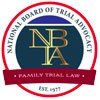RECENT NEWS
ATTORNEY MELISSA F. BROWN
BLOG SIGN UP
Blog Sign Up
MARTINDALE-HUBBELL AV RATING
SUPER LAWYERS RATING
Charleston, South Carolina Divorce, Custody, Equitable Distribution Mediator
Credentials
- SC Certified Family Law Mediator
- Fellow, American Academy of Matrimonial Lawyers (AAML)
- President-Elect SC Chapter of the AAML
- AAML Certified Family Law Mediator
- SC Board Certified Family Law Trial Attorney, National Board of Trial Advocacy
- AAML Certified Family Law Arbitrator
This web site is designed for general information only. The information presented at this site should not be construed to be formal legal advice nor the formation of a lawyer/client relationship. Past success does not indicate the likelihood of success in any future representation.
Dedicated to Finding Reasonable Solutions In All Family Law Cases–From the Simplest to the Most Complex
At Melissa F. Brown, LLC, we know that family law cases involving divorce, custody, alimony, equitable distribution, child support, expert fees, legal fees and other matters often cause extreme stress for families regardless of the value of the parties’ marital estate. We also know that family court cases are often uniquely contentious and complex. However, when handled properly, parties are often able to reach settlements that practically and fairly meet their needs and those of their children.
Where the parties cannot agree on what may be practical or fair, our team brings together experienced litigators, accounting and financial experts, custody experts, and investigators to present the client’s best possible case using the most current technology. Our lawyers are well versed in the unique challenges of high-asset divorces and contested custody cases, and we have the skills, knowledge and experience to resolve your divorce with minimum conflict and maximum efficiency. Let us help you protect your financial future and your children’s best interests.
Experienced, Fair, Knowledgeable South Carolina
Family Law Firm
The law firm of Melissa F. Brown, LLC is dedicated to securing your post-divorce financial future. Our wealth of legal knowledge and family law experience along with our meticulousness, preparedness and compassion for you and your children allow us to maximize your results and protect your future.
We handle all divorce, custody, and post-divorce-related cases, including:
- High-Asset Property Divisions
- Determination of income
- Calculation of Alimony
- Calculation of Child Support
- Custody
- Relocation
- Visitation
- Interstate Child Abduction
- International Child Abduction
- Jurisdictional Disputes
- Enforcement Proceedings
- Modification Proceedings
- Settlement Agreements
- Prenuptial Agreements
- Postnuptial Agreements
- Reconciliation Agreements
We Strive for Amicable Resolutions
But Prepare as if Going to Trial
We are not afraid to accept the most challenging, complex, divorce, custody, or other family law related cases. Even in the toughest circumstances, we seek to minimize conflict to help clients achieve an amicable, fair, and practical resolution. Nevertheless, we are pro-active and prepare each case as if trial is inevitable. This approach, especially against difficult opposing parties, better enables us to work toward a reasonable, fair resolution and often encourages settlement. However, if trial is necessary, we are zealous advocates having years of family court trial experience.
We Want to Help You – Contact Us
To learn more about our South Carolina divorce law firm and how we can help you resolve your divorce or family law problem, please review our firm overview pagee, call us at (843) 722-8900 or contact us online to schedule a consultation. We are happy to help you transition to your new life.





















